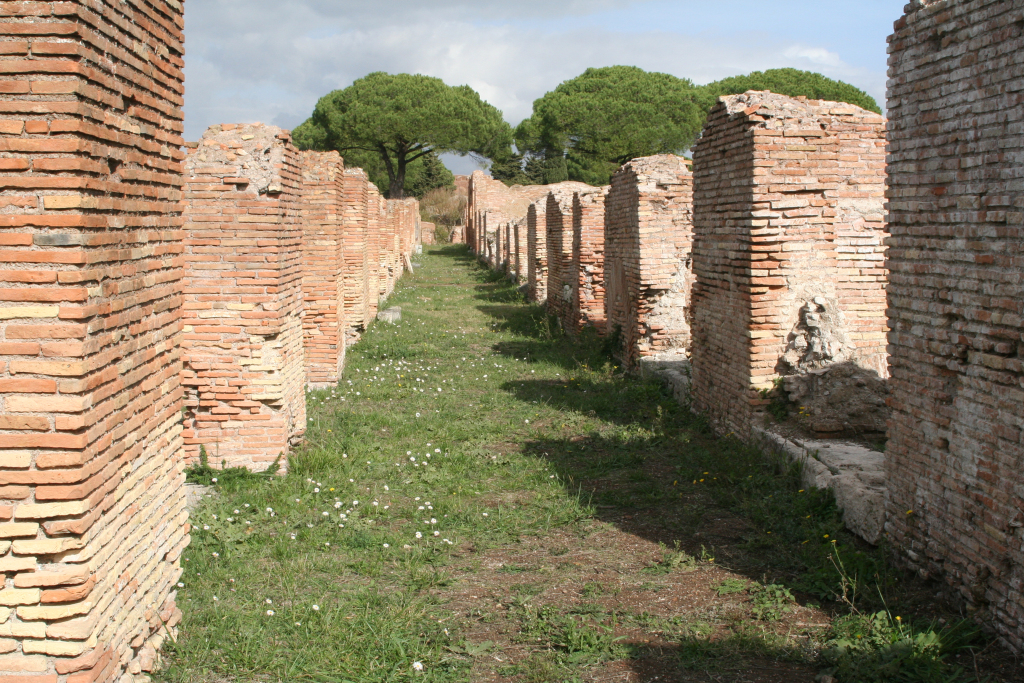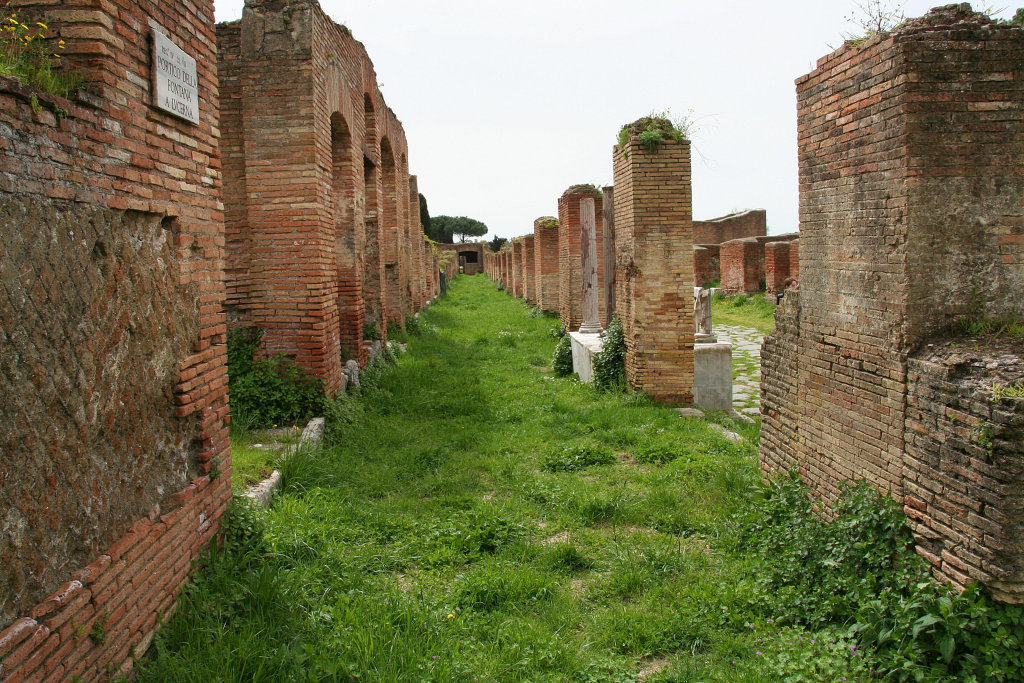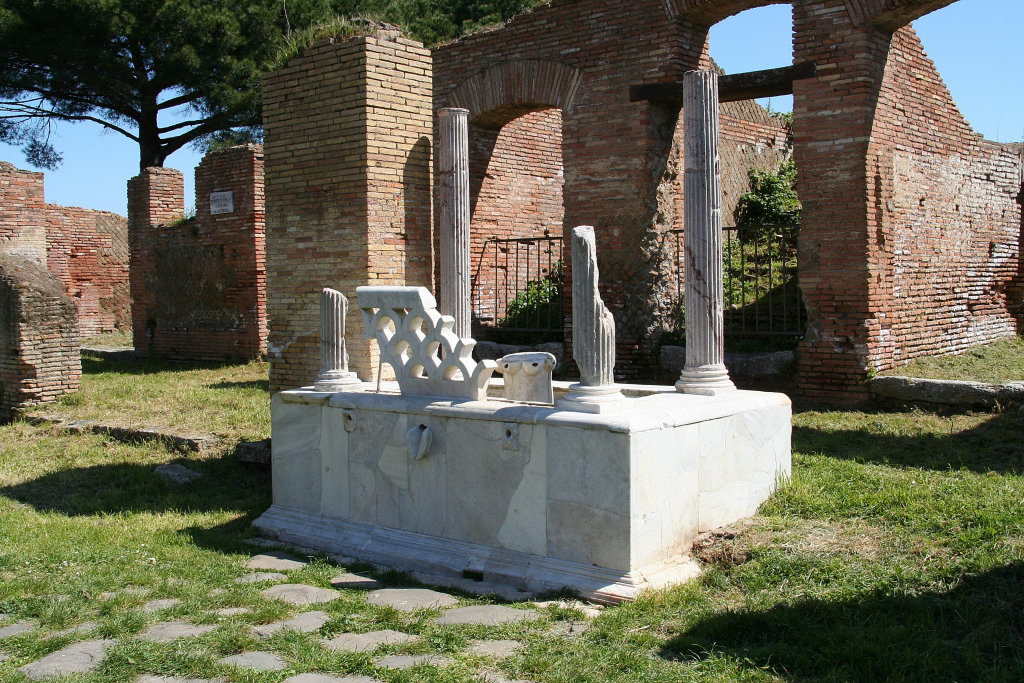The Porticus and House of the Lamp Fountain was an important decorative feature of the western Decumanus. It follows the south side of the street over a length of 120 metres. It was built in the Hadrianic period, c. 120 AD. The piers of the arcade were later reinforced on both sides. The west end of the porticus was rebuilt later, probably in the third century.
The porticus received its name from a marble fountain opposite a staircase in the centre of the block. The fountain consists of a basin with a small column in the centre, the top of which imitates an oil lamp. It has seven spouts for wicks, but from the openings came water. On the side of the street the fountain has many small arches. The roof was supported by four fluted little columns.
To the south of the porticus are deep shops with back rooms. The facade is made of opus mixtum, which is unusual: buildings of opus mixtum usually have facades of opus latericium.
In the building were three bars, in the fifth, tenth and twelfth shop from the west. The first one has a bar counter with a water basin in the north-west corner. The second one had a bar counter in the north corner, now in ruins. In the rubble pile half a mortar was found. The third one had a bar counter with a water basin in the north corner.
Plan of the building. After SO I.





